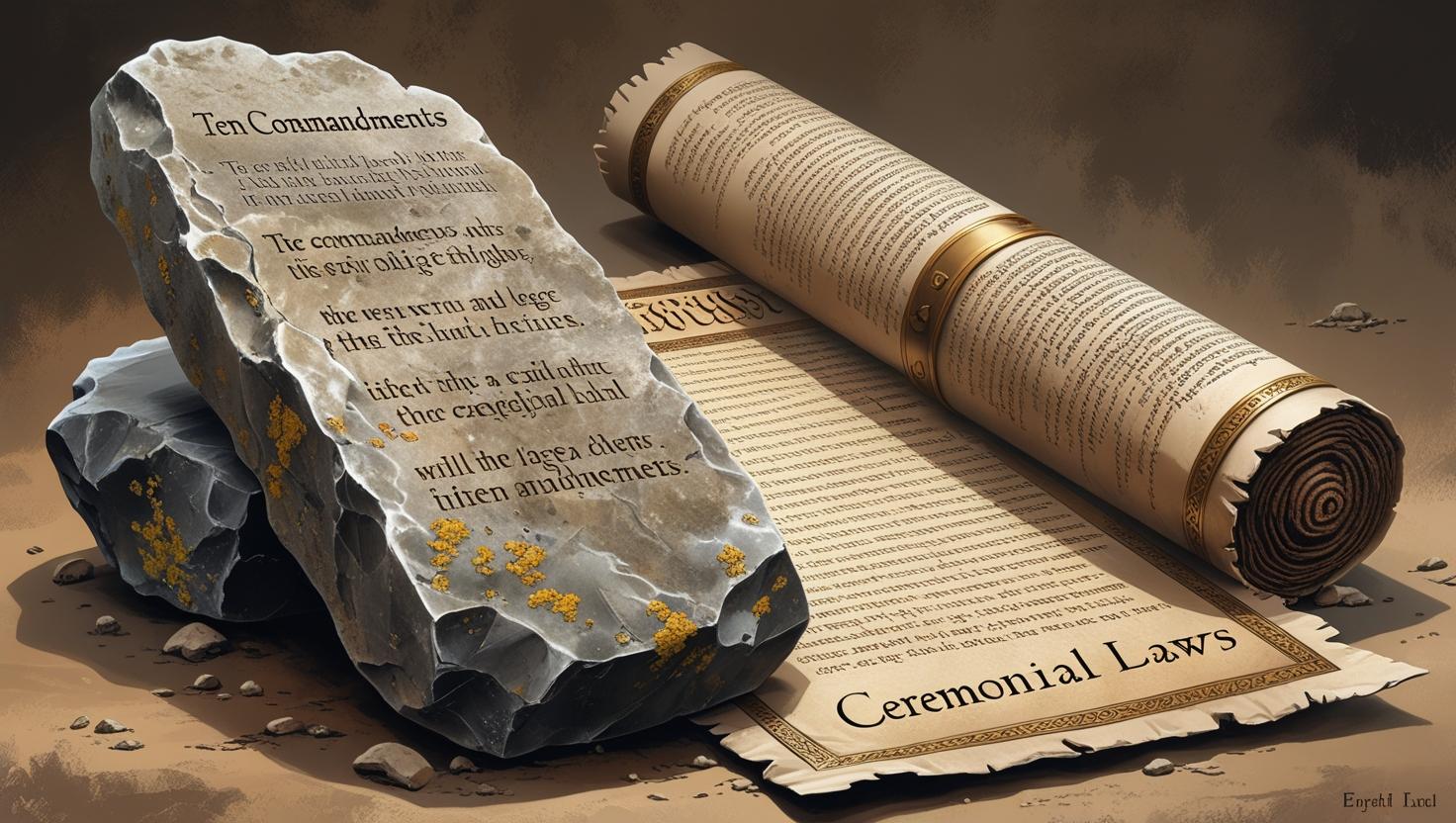News Details Home / News Details

Is There Only One Law in the Bible?
Objection:
Seventh-day Adventists claim that there are two laws in the Bible: one moral and the other ceremonial. But the Bible teaches that there is only one law. Since that one law was abolished by Christ (Eph. 2:15), this would necessarily include the Ten Commandments—especially the Sabbath commandment, on which Adventists base their doctrine.
Answer:
So much false reasoning has been built upon the assumption that the Bible teaches only one law, that this claim must be examined thoroughly. To say that “law” always means the same thing in Scripture is no more logical than insisting that every biblical use of the word “day” must refer to the same length of time. In fact, the Bible uses the term law in various ways, depending on context.
Let’s explore the biblical evidence that clearly demonstrates a distinction between the moral law (the Ten Commandments) and the ceremonial law (the law of rites, sacrifices, and religious rituals).
1. The Word “Law” Has Multiple Meanings
In Scripture, the term “law” is used in different senses:
- The Books of Moses: “The law and the prophets” often refers to the first five books of the Bible.
- All Divine Instructions: Sometimes “law” is a general term for any of God’s commandments.
- Specific Codes: Frequently, “law” refers to a specific set of instructions—either moral or ceremonial.
To insist that the word always means one particular thing ignores its varied biblical usage.
Example: Just as the word “day” may refer to daylight (Gen. 1:5), a 24-hour period (Ex. 20:11), or a symbolic era (“the day of salvation,” 2 Cor. 6:2), so also “law” can refer to different types of divine instruction.
2. Paul Speaks of Two Different Laws
Consider these two seemingly contradictory statements from Paul:
- “Having abolished...the law of commandments contained in ordinances” (Eph. 2:15)
- “Do we then make void the law through faith? God forbid: yea, we establish the law.” (Rom. 3:31)
Both verses use the same Greek root katargeō, meaning “to abolish” or “make void.” Did Paul declare to one church that the law is abolished, and to another church that the law is not abolished? Clearly, two different laws are being referenced.
3. The Unique Giving of the Ten Commandments
God distinguished the Ten Commandments from all other laws:
- Spoken directly by God to the entire nation (Deut. 4:12)
- Written with God’s own finger (Ex. 31:18)
- Written on stone, not parchment (Deut. 5:22)
- Placed inside the Ark of the Covenant (Deut. 10:1-5; 1 Kings 8:9)
- Declared to be God's covenant (Deut. 4:13)
This law was not mediated through Moses like the ceremonial laws. It stood alone in majesty and permanence.
4. The Ceremonial Law Was Given Differently
The ceremonial and civil laws included regulations for:
- Sacrifices and offerings
- Feasts and holy days
- The priesthood
- Civil statutes (e.g., on marriage, property, slavery)
These were:
- Spoken by God to Moses, then relayed to the people (Lev. 1:1-3)
- Written by Moses (Deut. 31:9)
- Placed beside the Ark, not inside it (Deut. 31:24-26)
- Called the “law of Moses”, even though ultimately from God (2 Chron. 30:16; Ezra 3:2; Mal. 4:4)
5. New Testament Distinctions
The New Testament maintains this two-law distinction:
Ceremonial Law:
- Circumcision is part of “the law of Moses” (Acts 15:5, 24; John 7:23)
- Priesthood and sacrifices belong to the “law of commandments contained in ordinances” (Eph. 2:15; Heb. 7–10)
- Described as a shadow of things to come (Heb. 10:1)
Moral Law:
- Jesus said, “If thou wilt enter into life, keep the commandments” (Matt. 19:17), and cited the Ten Commandments.
- The Sabbath was kept “according to the commandment” (Luke 23:56)
- Paul said “I had not known sin but by the law… Thou shalt not covet” (Rom. 7:7)
- James speaks of “the law of liberty” and cites the Ten Commandments (James 2:10-12)
- John says, “Sin is the transgression of the law” (1 John 3:4)
6. Summary Comparison: Two Distinct Laws
Attribute | Ten Commandments | Ceremonial Law |
Spoken by | God (Deut. 4:12) | Moses (Lev. 1:1-3) |
Written by | God (Ex. 31:18) | Moses (Deut. 31:9) |
Material | Stone (Ex. 31:18) | Parchment (Deut. 31:24) |
Placement | Inside Ark (Deut. 10:1-5) | Beside Ark (Deut. 31:26) |
Duration | Eternal (Ps. 111:7,8; Matt. 5:18) | Temporary (Heb. 7:12; Gal. 3:19) |
Purpose | Defines sin (Rom. 3:20; 1 John 3:4) | Foreshadowed Christ (Heb. 10:1; Col. 2:16-17) |
Called what? | Law of God (Neh. 10:29) | Law of Moses (2 Chron. 30:16; Mal. 4:4) |
Standard of judgment? | Yes (James 2:12) | No (Col. 2:16) |
Upheld by Christ? | Yes (Isa. 42:21) | No (Eph. 2:15) |
7. Why This Matters
If we do not distinguish between the moral and ceremonial laws, we create confusion:
- Paul’s statements appear self-contradictory.
- The gospel appears to nullify all law.
- The foundation for sin, obedience, and judgment collapses.
But when we recognize that God gave two distinct laws, it becomes clear:
- The ceremonial law pointed forward to Christ and was fulfilled in Him.
- The moral law expresses God’s eternal will and continues as the standard of righteousness.
Conclusion
To claim there is only one law in the Bible is to flatten Scripture’s rich legal and theological framework into confusion. The Bible presents two distinct laws, each with its own purpose and duration. The Ten Commandments were never part of the ceremonial law and were never abolished. They remain God's eternal standard for right and wrong—written on stone, preserved in the ark, and upheld by Christ Himself.
The “one law” theory is not only biblically inaccurate—it is spiritually dangerous. For if there is no moral law today, then there is no sin. And if there is no sin, there is no need of a Saviour.
But praise God, there is a Saviour—because there is a law that still reveals our need of grace.
Leave A Comment
Sing in to post your comment or singup if you don’t have any account.

0 Comments